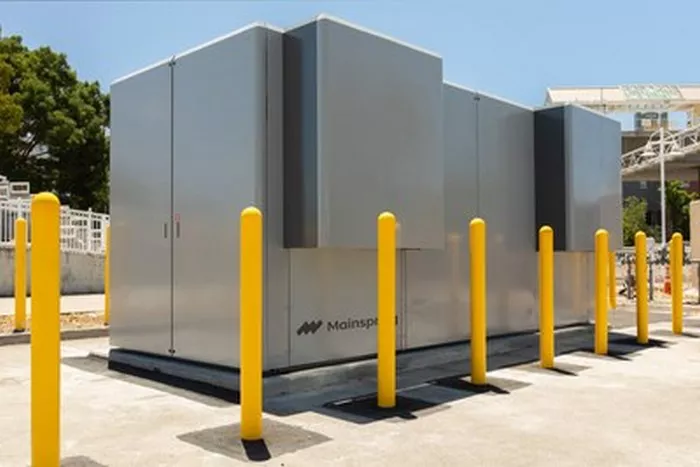Mainspring Energy, a startup specializing in innovative generators, has secured $258 million in funding to help power data centers, with a focus on clean energy solutions. The company’s linear generators can run on various types of gas, including carbon-free hydrogen, and are already being used by major customers, including a unit of NextEra Energy Inc. and several data centers.
The company’s technology works by creating a flameless reaction of air and fuel to generate electricity. Mainspring’s generators are particularly appealing to data centers, which require reliable and affordable power amid growing demand. The company’s technology is able to run on multiple gaseous fuels like natural gas, ammonia, propane, or biogas, offering flexibility and cost-effective solutions for energy needs.
Samir Kaul, founding partner at Khosla Ventures, which first invested in Mainspring in 2010, highlighted the strong demand for the company’s product. “The bottom line is that if you need power now, you can’t wait for the grid and you can’t wait for natural gas turbines to come online,” Kaul said.
Mainspring’s generators, capable of delivering tens of megawatts of power, are set to ship to US data center customers this year. CEO Shannon Miller noted that the generators provide power at a cost comparable to or lower than grid electricity in many areas. The technology also boasts a lower total cost of ownership, with a three-year payback period.
The latest Series F funding round was led by General Catalyst, with new board members Tom Linebarger, former CEO of Cummins Inc., and Bethany Mayer, former CEO of Ixia. Other investors include Amazon’s Climate Pledge Fund and Temasek Holdings. This follows Mainspring’s $290 million Series E round in 2022.
Mainspring’s challenge is to convince new customers to adopt its technology, as data center operators are often reluctant to try new systems due to concerns about downtime. However, the company’s generators can easily switch fuel sources, allowing for a transition from natural gas to cleaner fuels like hydrogen. Miller acknowledged that while hydrogen could become a cleaner, albeit more expensive, alternative, the infrastructure needed to support it will take time to build.
Related topics:

